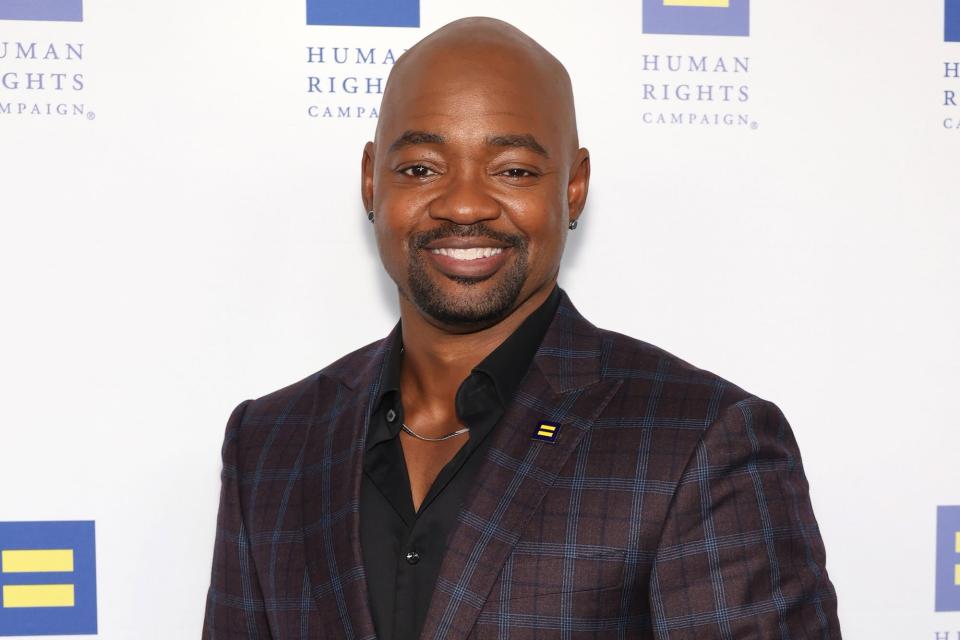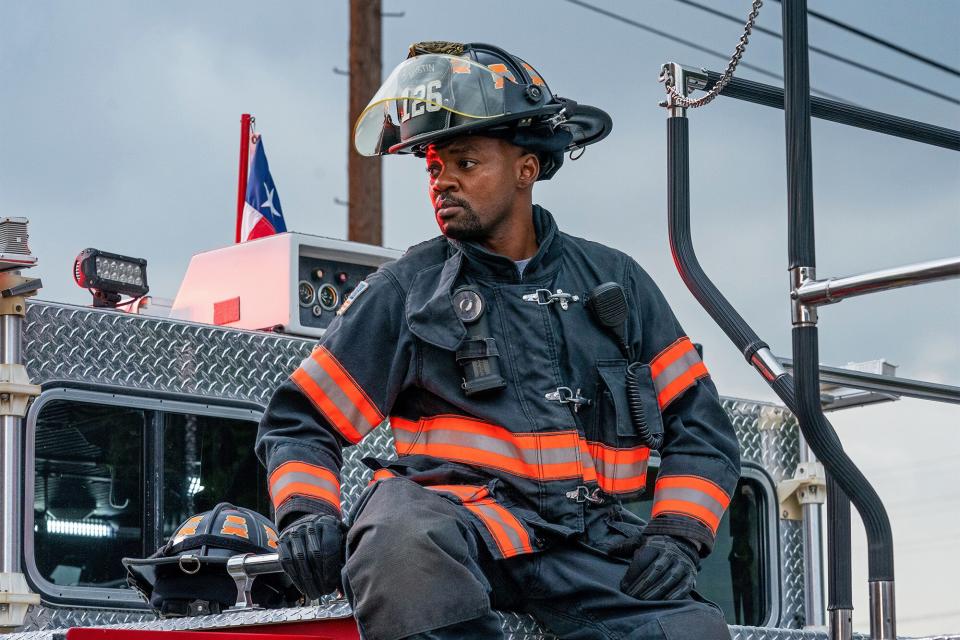9-1-1: Lone Star 's Brian Michael Smith didn't think he'd work as an openly trans actor
- Oops!Something went wrong.Please try again later.
Brian Michael Smith is worried.
Though he's grateful to live and work in California, where he sees allies fighting for trans rights, he sees the direction the national conversation is going and fears how legislation in other states could impact transgender people's access to vital medications.
"My medication I've been using for 20 years is covered by my insurance," says the Queen Sugar and The L Word: Generation Q alum, who currently stars on 9-1-1: Lone Star as firefighter Paul Strickland. "What happens if people respond the way that Walgreens responded with Plan B, where they said, 'We're just not going to cover this. We're not going to carry it.' I feel very destabilized, and it's really heartbreaking to see."

Monica Schipper/WireImage Brian Michael Smith
Smith opened up about his concerns, and his own journey to acceptance and pride, as part of EW parent company Dotdash Meredith's From Invisibility to Trans Visibility Week panel, which was moderated by writer and actor Scott Turner Schofield. The discussion also featured ACLU Deputy Director for Transgender Justice Chase Strangio, Olympian Chris Mosier, and Our Flag Means Death actor Vico Ortiz.
"I've worked at the LGBT Center in Manhattan and to see the impact that having a space where [young people] could try a new name, where they could try a new pronoun, where they could put on a shirt that made them feel pretty, or made them feel handsome, made them feel strong, and feel completely supported," said Smith. "How much strength that gave them to go out into the world, because they didn't have that kind of support anywhere else. Just having somebody say, 'I will call you by that name. I will see you for who you are trying to be'.... Seeing what that did for them was was magnificent, and gave me so much hope, because they were getting it so early. They don't have to go through the 15 years of stuff that I had to go through, of being alienated, and feeling by myself."
He continued, "When I was 19, I was in college in the middle of Ohio and I didn't know what I was going to do. This was very early internet days, you know. I was still using, like, AOL to find people and message them. I had to ask Jeeves a bunch of questions [to get] answers. It was really hard to get information. But once I did, there was something really illuminating about that. I discovered a lot of new language. I'd never even heard the word transgender before. There were a lot of slurs [and] derogatory terms that we don't use now. Having a word that really spoke to my experience really helped me come to acceptance of who I was."
Smith also discussed how being a high school and college athlete meant "wasn't able to access or really utilize hormones." He added, "I was cutting my hair the way I wanted to cut it, wearing the clothes I wanted to do, but I kind of felt like I was in between. Then, once I got into my mid-twenties and I was able to access medical care, I was able to start hormone therapy and I was able to see myself expressed on the outside and really be inside my body for the first time — be visibly seen and taken into the world as myself, as Brian."
As he started to pursue acting, Smith saw himself as a "canvas" and hoped to bring his life experience to his work. "But the roles that were available [were] like a paint-by-numbers situation. There wasn't much going on. I wasn't going to make any masterpieces with what was available to me. And so I had this choice. I was like, 'Well, either I could be out, and then take the sort of bad trans representation that was available, or I could just define who I am as a person and what I want to explore now, and then, when the moment comes, I can share this part of myself.'"
It wasn't until 2015 or '16 that Smith says he started to feel like there was a "lane" for him as a trans actor. Inspired by the likes of Laverne Cox, he became "willing to be visible for all of the people who don't have the level of comfort [I have] — that level of safety."

Jack Zeman/FOX Brian Michael Smith on '9-1-1 Lone Star'
"I didn't see it for myself for a long time, and now it's like, 'Well, I can be that for somebody else,' and I feel equipped to do it," he said. "I had the privilege of choice. I know there are a lot of my trans and non-binary siblings who don't have the choice. They have to disclose every time they walk out of their house. They have to deal with the world in a different way than I can because of how I appear. [But we've all] been trans the whole time. I never was a woman who became a man. I was me the whole time. And just because you don't understand it doesn't mean that we're not real."
"I feel like that's something I have a really hard time navigating," he continued. "We have these sort of arguments and these debates where people are trying to tell me about something, and I'm like, 'I'm the one living the experience. I'm here, I'm telling you, I'm a trans person. You're not, that's okay. You don't have to be trans. I am. Let me live.'"
Sign up for Entertainment Weekly's free daily newsletter to get breaking TV news, exclusive first looks, recaps, reviews, interviews with your favorite stars, and more.
Related content:

